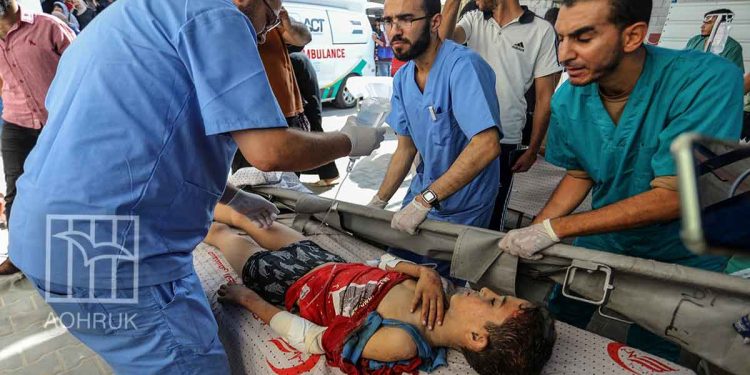Israeli drone strikes on Sunday killed 10 Palestinians, including five children, in a series of targeted attacks on tents sheltering displaced persons and on a civilian riding a bicycle in the city of Khan Younis, southern Gaza Strip. The strikes form part of a continuing pattern of lethal force that has marked the conflict since 7 October 2023, characterised by attacks on civilians, forced displacement, and the systematic destruction of civilian infrastructure.
Four people, including two children, were killed when a displacement tent was struck in the Al-Mawasi area, northwest of Khan Younis. A subsequent strike on a neighbouring tent killed another four people, including two more children. In a third strike, a child from the Fahjan family was killed. Separately, a young man was killed when a drone targeted a bicycle in the same vicinity.
These attacks were accompanied by intense artillery shelling and gunfire by Israeli military vehicles in the eastern town of Abasan al-Kabira. At the same time, sustained aerial and artillery bombardments continued to target residential buildings in the eastern districts of Gaza City, particularly Al-Tuffah, which has been subjected to near-daily bombardments.
Civilian structures including places of worship have also been targeted. A mosque in Jabalia, in the northern Gaza Strip, was struck in an air raid, resulting in civilian injuries. Under international humanitarian law, houses of worship are afforded specific protections, and their targeting may constitute a violation of these legal norms.
The repeated and deliberate targeting of civilian shelters, religious sites, and densely populated areas, combined with ongoing deprivation of access to essential goods, appears consistent with acts defined in Article II of the 1948 Convention on the Prevention and Punishment of the Crime of Genocide, which describes genocide as acts committed with intent to destroy, in whole or in part, a national, ethnical, racial or religious group.
Field reports from Gaza document widespread destruction, the indiscriminate killing of children and women, and the deliberate denial of access to vital resources. These conditions collectively meet the legal threshold for the classification of the events in Gaza as genocide.
Since the onset of the conflict, more than 172,000 people have been killed or injured, with over 11,000 reported missing. These figures provide stark evidence of the scale and nature of the campaign being waged, which observers have increasingly described as an ongoing crime of genocide, occurring in full view of the international community. The failure to halt the attacks or hold perpetrators accountable has led to growing concerns of complicity through silence or active political support.
Such acts represent grave breaches of the Geneva Conventions, in particular the Fourth Convention, which prohibits the targeting and forced displacement of civilians. Violations against children contravene the Convention on the Rights of the Child, which mandates special protection during armed conflict.
In light of these developments, continued international inaction may not only represent a moral and legal failure but could contribute to the legitimisation and perpetuation of genocide. The international community, particularly state parties to the relevant conventions, bears a legal and ethical responsibility to intervene, ensure protection for civilians, and initiate proceedings for criminal accountability.




























